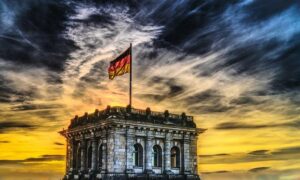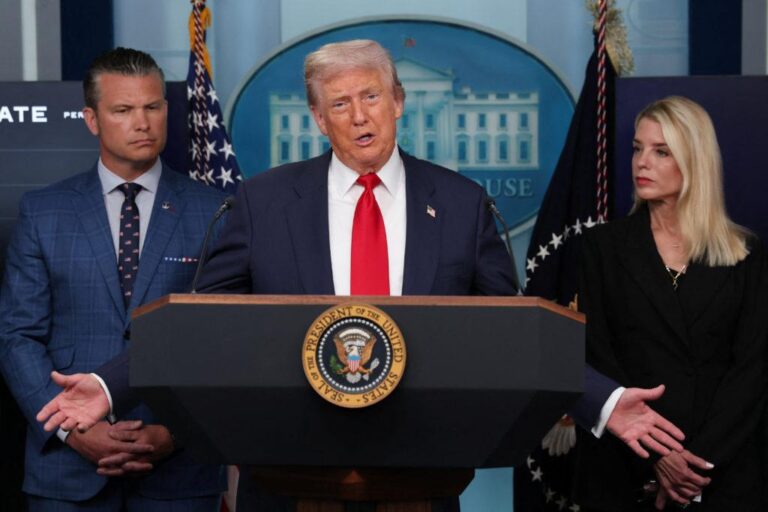Examining Former President Donald TrumpŌĆÖs Influence on Washington D.C. Law Enforcement
Scope of Presidential Power Over Federal Law Enforcement in Washington D.C.
The U.S. President wields considerable authority over federal law enforcement agencies, particularly those operating within the boundaries of Washington D.C. This power, however, does not extend to the cityŌĆÖs local police force, the Metropolitan Police Department (MPD), which is governed by the DistrictŌĆÖs elected officials. Instead, presidential influence is confined to federal bodies such as the U.S. Park Police, the Federal Bureau of Investigation (FBI), and the U.S. Capitol Police, all of which have jurisdiction over federal properties and landmarks within the capital.
It is crucial to understand that the PresidentŌĆÖs command over these agencies is regulated by statutory laws and subject to congressional oversight. Below is an updated overview of federal law enforcement agencies in Washington D.C. and the extent of presidential control as of 2024:
| Agency | Jurisdiction | Level of Presidential Authority |
|---|---|---|
| U.S. Park Police | Federal parks, monuments, and recreational areas | Direct Command |
| U.S. Capitol Police | Capitol complex and grounds | Indirect Oversight (Legislative Branch Supervision) |
| Metropolitan Police Department (MPD) | District-wide local law enforcement | No Presidential Control |
- Presidential authority is confined to federal law enforcement agencies operating on federally owned land and properties within Washington D.C.
- The MPD remains under the jurisdiction of the DistrictŌĆÖs local government, preserving its independence from federal executive influence.
- Federal law enforcement actions must comply with statutes such as the Posse Comitatus Act, which limits military involvement in civilian policing.
Legal Boundaries and Congressional Oversight Governing Police Control
Any effort by former President Donald Trump or other federal officials to exert direct control over Washington D.C.ŌĆÖs local police is constrained by a robust legal framework and vigilant congressional supervision. The MPD operates under the authority of the D.C. Mayor and City Council, reflecting the districtŌĆÖs unique status. While the federal government oversees certain specialized law enforcement units, the local police forceŌĆÖs governance remains primarily a municipal responsibility.
Key legal and oversight mechanisms include:
- District of Columbia Home Rule Act: Establishes the autonomy of local governance and restricts federal interference in city policing.
- Congressional Budget Authority: Congress controls the districtŌĆÖs funding, meaning any federal takeover or restructuring requires legislative approval.
- Judicial Intervention: Courts have historically blocked unauthorized federal attempts to override local law enforcement control.
- Congressional Oversight: Federal actions affecting D.C. law enforcement are subject to hearings and investigations to ensure accountability.
| Authority | Role in Policing Governance |
|---|---|
| D.C. Mayor | Direct oversight and management of MPD |
| U.S. Congress | Legislative authority and budget control |
| Federal Law Enforcement Agencies | Jurisdiction limited to federal crimes and properties |
Consequences for Local Policing and Public Safety in the NationŌĆÖs Capital
The prospect of federal intervention or presidential influence over Washington D.C.ŌĆÖs police forces raises critical questions about the impact on local governance and public safety. Disrupting the established command structure could create operational confusion among officers, potentially undermining their effectiveness. Additionally, the politicization of law enforcement risks eroding community trust, which is essential for effective crime prevention and emergency response.
Local agencies must navigate the delicate balance between complying with federal directives and addressing the specific needs of diverse neighborhoods. Experts have identified several public safety concerns related to shifts in policing authority:
- Accountability: Unclear oversight may weaken responsibility and transparency.
- Resource Distribution: Changes in funding priorities could detract from community-based programs.
- Community Engagement: Heightened tensions may reduce cooperation between residents and police.
- Operational Independence: Restrictions on decision-making could delay critical responses.
| Area of Concern | Potential Effect | Recommended Mitigation |
|---|---|---|
| Chain of Command | Officer confusion and mixed directives | Establish clear jurisdictional protocols |
| Public Confidence | Erosion of trust in law enforcement | Maintain transparent and consistent communication |
| Funding Allocation | Misaligned resource distribution | Conduct thorough community needs assessments |
Strategies from Experts to Harmonize Federal and Local Policing Roles
Experts agree that maintaining a balanced relationship between federal and local law enforcement is vital, especially amid politically sensitive circumstances. They stress that federal agencies should complement, not replace, local police efforts. Legal analysts advocate for collaborative partnerships grounded in mutual respect and clearly defined responsibilities to safeguard public safety while upholding civil rights and local autonomy.
Recommended approaches to foster effective cooperation include:
- Integrated Task Forces: Combining federal and local resources with transparent operational frameworks.
- Independent Oversight Committees: Monitoring enforcement activities to ensure accountability and fairness.
- Comprehensive Civil Rights Training: Promoting cultural competency and reducing bias across agencies.
| Recommendation | Objective |
|---|---|
| Integrated Task Forces | Enhance coordinated responses while respecting jurisdictional boundaries |
| Independent Oversight Committees | Ensure transparency and accountability in law enforcement actions |
| Civil Rights Training | Build trust within communities and minimize discriminatory practices |
Conclusion: Navigating the Complexities of Policing Authority in Washington D.C.
The ongoing discourse about former President Donald TrumpŌĆÖs potential to influence Washington D.C.ŌĆÖs police forces highlights the intricate balance between federal authority and local self-governance. Legal restrictions, political considerations, and public sentiment will all shape the trajectory of this issue. As the situation develops, stakeholders and observers will be attentive to how governance and law enforcement dynamics evolve in the nationŌĆÖs capital, reflecting broader debates about power, accountability, and community safety.







